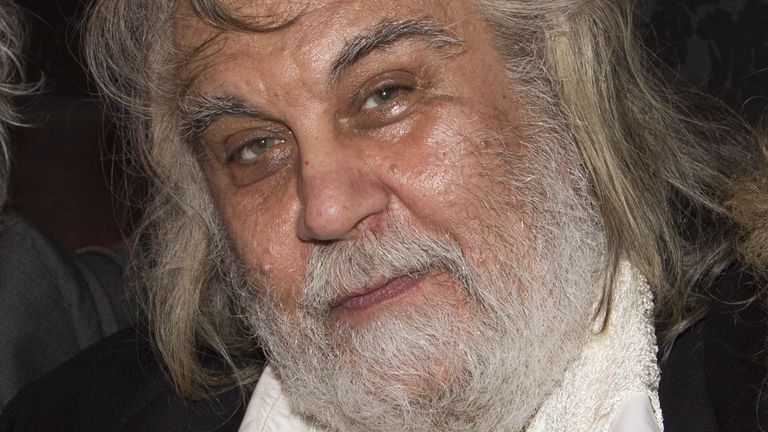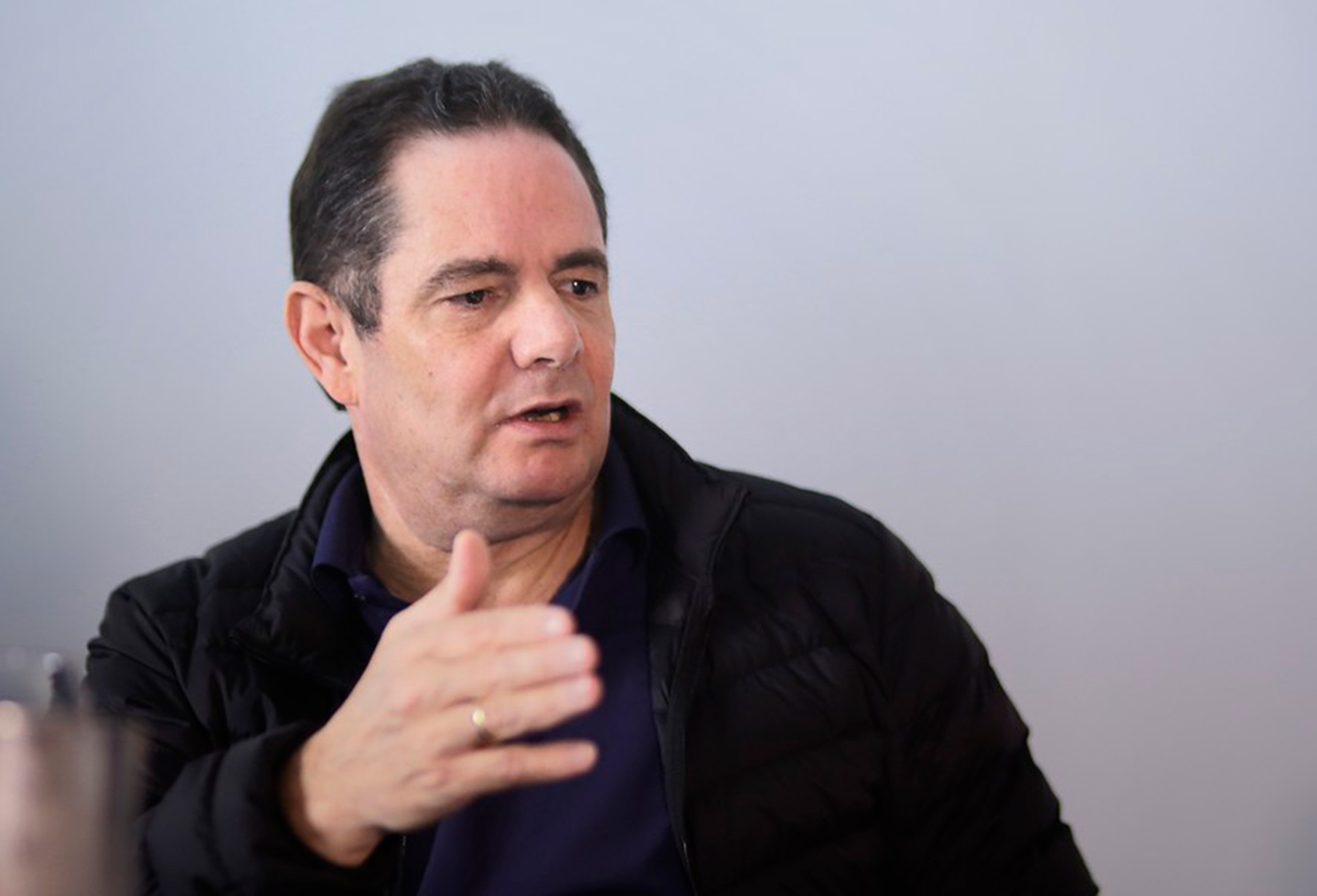I read that Vangelis died at the age of 79. I read it several times and wondered about death again. I wondered what the nerve of the exact word would be to witness the death of a musician like Vangelis. To define the meaning of the definitive absence of a man from space. Why a phrase, a word and not another? I wondered how it was possible to speak in such a way about an artist who, the more he was in this world, the further he moved away. It seemed to me, in the wound of the word, that Vangelis had long since abandoned the physical realm. That he had definitely left some time ago to settle in that spiritual and spatial dimension that he created for himself and then for us, mere mortals. A dimension with which he established a dialogue until pain to show us the entrance to worlds that remained unknown until his arrival.
The choice was ours. You take a risk or you stay on the threshold. The red pill or the green pill. But those of us who took the step attracted by the simple pleasure of adventure knew the certainty that there was no possibility of going back.
The decision paid off in our minds, in the way that, with a few years, you think you are learning to decipher reality, when reality is the executioner that really takes care of you. Vangelis’s universe made many of us lose our heads and run down a highway of evocations that always ended in the same place, in that tremendous shock of the spirit. The result was the same, but the route changed radically each time. The conversation about the meaning of the weight of life did not differ, but the search for those outer spaces to which Vangelis finally took us on a journey with no return did.
From the career of Evangelos Odysséas Papathanassíou, his real name, the media have placed the lights behind his new drift in his brightest moments. In their chariots of fire, in bladerunnerand some more specialized have spoken of their relationship with And it isof his stay at the top of the New age and its most diverse and advanced projects. The Greek’s career is dazzling, but now neither the flesh nor the rust of biography interest me, but the sparkle of life. With Vangelis I am interested in remembering how he helped us get lost on that journey that, by force of will, one tries to never end —although reality takes you by the hand and makes you look squarely at the abyss of the ground.
After his death, the ritual. The review of his music, his records, his career. But, unlike those years of discovery, I am already another victim of the terror produced by going back over the sound documents of the years of expansion without the certainty that they will provoke the same tremors of the spirit again. The terror of listening and not hearing anything. To no longer feel tightness in the chest. To feel the shock of true death.
going back over Conquest of Paradise, Alpha, Mutiny of the Bounty either missing and other less famous works of Greek, at least I was sure that most of the pieces of that person I was remained more or less in their place. There were cracks, tears, and buried damage to the skin and face. However, the shelter of the spirit had not suffered the same damage of time. I suffered again the joy of solitude of that immaterial life that Vangelis gave us in his moments of greatest glory so that we could put our bodies to rest, to allow our minds to grow, and so that we could see the person we were from above, from that sidereal world that the Greek opened wide.
And he did it for life.
There is an image of Vangelis that I do not forget. The musician is at the piano interpreting the soundtrack of chariots of fire. She has a cigarette in her hand and watches the sound scenes of one of his masterpieces. The wisps of smoke envelop him and he looks like he could disappear at any moment between the mist and the sounds. The athletes continue running on the screen and Vangelis is at the piano, but already in his eyes it is perceived that he had disappeared to become the expressive material of his music. As if with him at that moment the legend that after death the soul detaches from the body was confirmed. But in Vangelis that process was habitual. He was the man who lived between two worlds, to which he invited us and showed us that we could do tourism on the wave of that other universe that allowed us to get away from ourselves, in a vital experience that everyone assumed with the freedom they wanted. .
Vangelis’ path is an opening path; radically transformative. He built new guidelines for electronic music in the market and popular music, without neglecting that very personal breath that he never ceased to identify in his work, undoubtedly crossed by a gallery of milestones. Vangelis had already anticipated the musician who would come with the premiere of his first album, Earth, an album in which the keys to the Vangelis to come can already be glimpsed: his admiration for cosmic environments, experimentation, and the musical expressions of the avant-garde. He before he had integrated the trio of pop experimental Aphrodite’s Child, and in that interval of time that covers the path from the 70s to the 80s, he rejected tempting invitations to be part of other projects. One of the best known was when he declined to replace the good old Rick Wakeman on the keyboard of And it is. In those years she recorded iconic albums, such as Heaven and Hell, Albedo 0.39 either Spiralwhich placed him in the center of world attention, a place in which he seemed to feel comfortable at times, but which demands a lot from a musician of his lineage to remain.
In those times of consecration he presented other albums with which he delved into his sound experiments and with which he also saw the rejection of a section of the public. For many of his early followers it was not a good “trip”, for example, to listen to Beauburg, published at the end of the 1970s, the year in which experimentation, pushed so much to the limit, turned for many artists into a gunshot wound or a room without windows, with all the doors closed. The album, like others in his career, seemed to be made for himself, for the very demands with which he faced music, although his way of relating to the avant-garde is very explicit on that album, as on so many others on his copious race.
Over time it is very difficult for those interested in the New age have not had Vangelis songs in their playlist. That experience was one of the most envied destinations in music away from the mainstream. Although that category was looked down upon at a time when Vangelis’s music resisted labels, there remains a rosary of the deepest and even most painful searches of music lovers decades ago.
In the 1970s, Vangelis was a musician who knew that human time was limited, although he had already built the course of his own time. Hence, he still surprises the result of his union with the vocalist of And it isJon Anderson, in a duo that called themselves Jon & Vangelis. The scaffolding was very similar to the rest of his previous work, but now the experiments had the shine of the unmistakable voice of Anderson, who had taken a vacation from his progressive rock band in those years. The communion was very recognizable and remains one of the most original unions of music guided by innovation, and the tracing of those rhythmic landscapes that lead you to believe that there really is that light when everything ends. the Friends of Mr Cairo It was one of the jewels in the crown of that prolific relationship that gave new forms of expression to the universe of music.
Yesterday a friend wondered what would have been bladerunner without the Vangelis soundtrack. It is a substantial question. Scott’s 1982 film is an extraordinary document, and I think very few doubt that. But the Greek gave him another magnificent way of transferring that outstanding film testimony to people. The question for me is another. Would there have been another musician at that time who dialogued so expansively with the film? Perhaps Jean-Michel Jarre or another of the colossi of the 80s. We will never have the answer in this world. What we do have left is that transformation produced in the spirit by the making of the film and that other journey that is Love-Theme in the soundtrack music.
Vangelis is, since the dawn of time, a perennial landscape in memory. It doesn’t matter that it’s barely mentioned, despite his return in 2021 with Juno to Jupiter. It doesn’t matter that for many his name is lost in the mist or confused with that of other composers who have had the work of the Greek among their leading influences. Nor does it matter that in Cuba his farewell is a footnote in the informative ether. Vangelis belongs to that rare lineage of musicians who are reborn when they die. I say this as if he were talking to myself. I write it after hearing it again and feeling that the person I was more or less remains on his feet. I return to that image of Vangelis interpreting from the piano the chariots of fire. And from a distance I perceive it, convinced that life is nothing more than a simple wisp of smoke.






